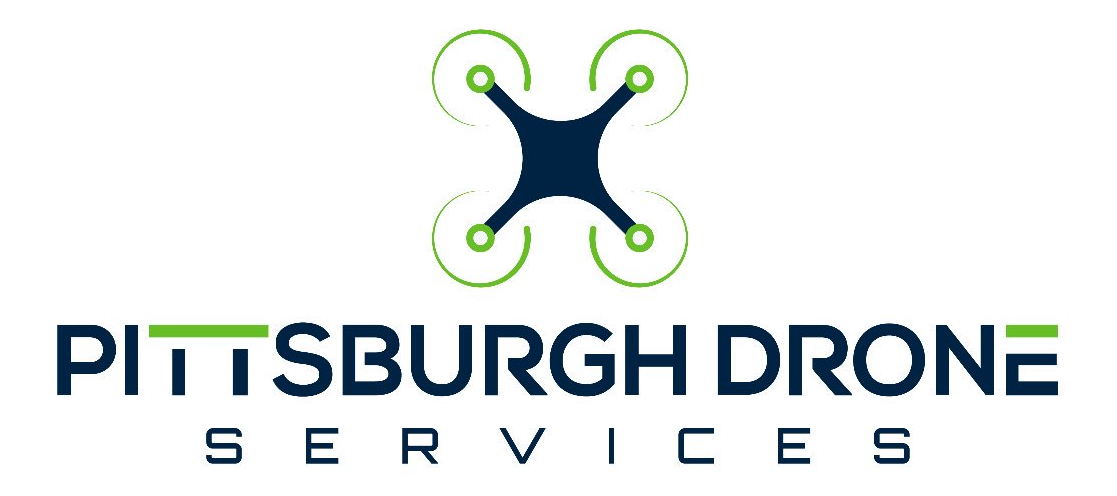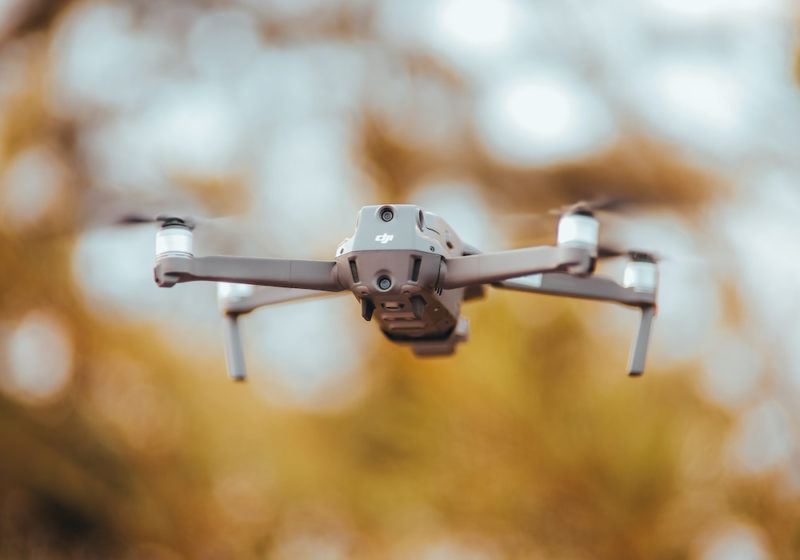After wandering into one in Butler, she happened upon and ultimately purchased a flying drone. Her initial fascination only grew as she began to learn more about the machines, and realized how unregulated the world of drones was at the time.
“We were an industry that was born with no rules, no regulation, no mentors, and probably just about no equipment other than one company,” Paluti said. (The regulations would come over time.)
Something sparked inside her, so Paluti went back to the toy store, purchased a larger drone, and soon was set on the path to becoming a certified small remote unmanned aircraft systems pilot. After spending a few years merging her educational background with her expertise in drones, in 2019, she founded Pittsburgh Drone Services.
Paluti previously ran her own company focused on corporate wellness services for over a decade before she ultimately stepped down. She told Technical.ly she didn’t envision herself ever taking on the mantle of CEO again, but realized the public didn’t have a lot of trust in an industry where she felt could provide a lot of opportunities. That’s why, in addition to offering a drone certification program, Paluti says one of the Downtown-based Pittsburgh Drone Services’ foci is educating the public about the drone industry.
“It’s important because education is king or queen,” Paluti said. “The more educated people are about the industry, the less negative perceptions at the mention of the word drone we’ll have as a barrier challenge to overcome.”

(Banner via twitter.com/PghDroneService
According to a Pew Research Center survey from 2017, around 26% of Americans said they’d feel nervous upon seeing a drone fly and 54% of responders said they didn’t feel that drones should be allowed to fly near peoples’ homes.
Her desire to provide students with career options was especially important to Paluti, as Pittsburgh Drone Services was founded shortly before the pandemic. During and after 2020, many people were uncertain about their careers, so she wanted Pittsburgh Drone Services to provide an opportunity to create positive opportunities. If you know your way around the technology, you could find a career as a drone pilot or drone engineer, or even use drone tech in careers such as photography or as a miner.
“We saw a lot of the transitions and follow-up from COVID so our goal at that point was not to sit and wallow in the fact that COVID destroyed a lot,” Paluti said, “but to recraft in the industry and start building people with skills early and get them ready for the commercial industry or whatever industry they would like to work in.”
If I educate somebody and get them workforce ready and get them with a good employer once they’re finished at Pittsburgh Drone Services, then I've done my job.
Over the past few years Pittsburgh Drone Services has worked with five area schools and, according to Paluti, has trained thousands of students at different stages. Currently, another service that the organization provides is acting as a liaison between its pupils and future employers. Since the company is a mostly one-woman operation, with Paluti being the only full-time employee, Pittsburgh Drone Services relies heavily on its interns who are typically engineering students.
“We prepare them for … what it’s like to work in the drone industry so that they’re using the technology the proper way,” she said.
Most recently, Pittsburgh Drone Services became a part of PGH Labs’ eighth cohort. Paluti said when she started her first business, it was in the early 2000s — a time without many accelerators, or much startup support in general — so PGH Labs appealed to her because she felt it’d provide an opportunity to make connections, learn about what’s changed since her first foray into the business world, and grow the company.
Paluti added that she’s aware of the concerns some members of the public have regarding drones that revolve around privacy and safety (for instance, people might worry about their privacy being invaded with drone cameras, or fear the injuries that could be sustained should a drone flying over people malfunction). Still, she feels that drones are an overall positive technology. By offering internships and free drone career courses, and training high school students to become certified pilots, Paluti feels that she’s helping to send individuals with an understanding of and respect for drone technology out into the world.
“My goal was always to educate,” Paluti said. “So if I educate somebody and get them workforce ready and get them with a good employer once they’re finished at Pittsburgh Drone Services, then I’ve done my job.”
Atiya Irvin-Mitchell is a 2022-2024 corps member for Report for America, an initiative of The Groundtruth Project that pairs young journalists with local newsrooms. This position is supported by the Heinz Endowments.Join the conversation!
Find news, events, jobs and people who share your interests on Technical.ly's open community Slack





